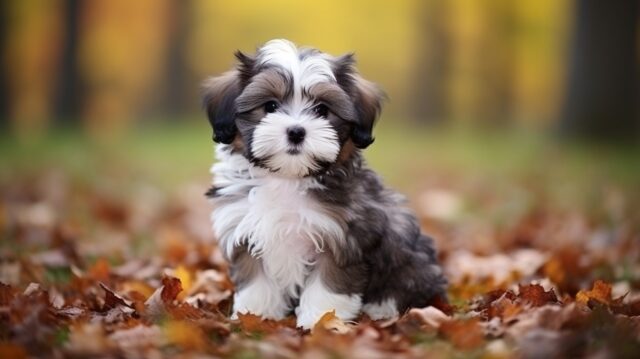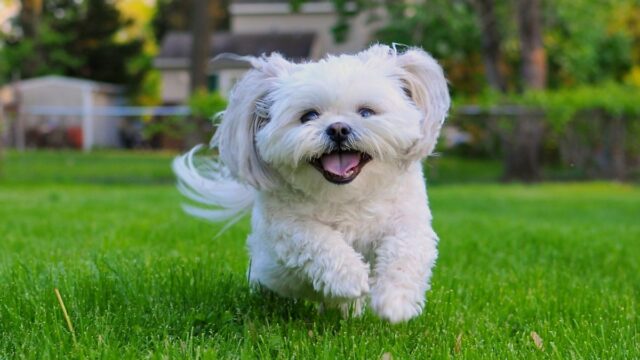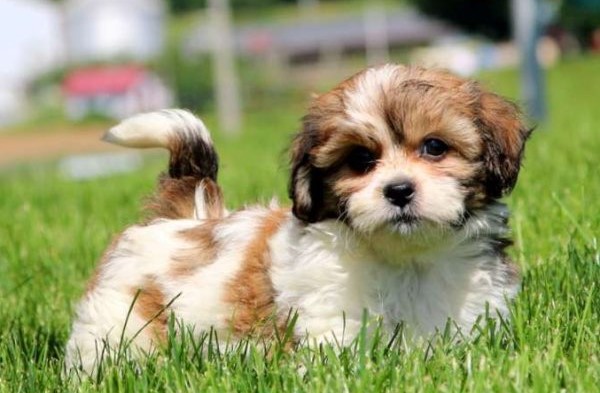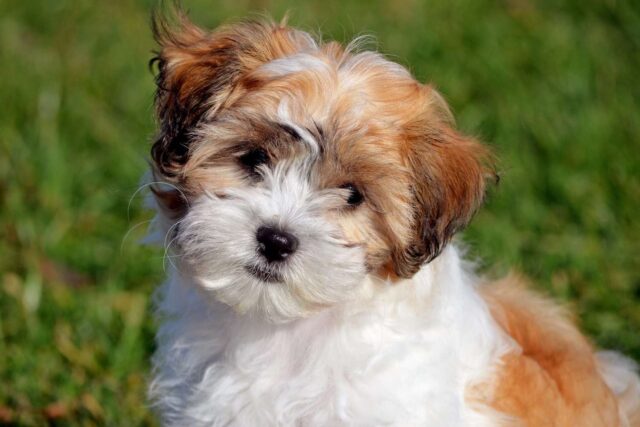Introduction to Teddy Bear Puppies
If you’ve been searching for the perfect small dog, you may have come across the adorable Teddy Bear puppy. Known for their cuddly appearance, these dogs are a hybrid breed, often a mix between a Shih Tzu and Bichon Frise, though other combinations can also be called Teddy Bears.
Their affectionate personality, hypoallergenic coats, and small size make them a popular choice for individuals and families alike. But before you bring one home, it’s important to know what life with a Teddy Bear puppy entails. Let’s explore the key characteristics of this breed and whether it might be the right fit for you.
1. Appearance
Size and Weight:
Teddy Bear puppies are small in stature, typically weighing between 8 and 15 pounds once fully grown. They usually stand about 9 to 12 inches tall, making them an ideal companion for those living in smaller spaces or looking for a lap dog. Their compact size contributes to their appeal, as they are easy to carry and care for.
Coat Type and Colors:
One of the standout features of Teddy Bear puppies is their soft, fluffy coat, which gives them their signature “teddy bear” look. Their coats are typically dense and curly, resembling a plush toy. Teddy Bears come in a variety of colors, including white, cream, brown, black, and mixes of these shades.
Their coats are also hypoallergenic, meaning they shed minimally, making them a good choice for people with allergies.
Grooming Requirements:
While their fluffy coats are adorable, they do require regular grooming. Teddy Bear puppies need to be brushed a few times a week to prevent mats and tangles, and they benefit from professional grooming every 6-8 weeks to keep their fur neat and tidy. Trimming around the eyes and face is often necessary to keep their vision clear and avoid irritation.
2. Personality and Temperament
General Temperament:
Teddy Bear puppies are known for their friendly, affectionate, and social nature. They thrive on human interaction and are known to form strong bonds with their owners. Their calm yet playful disposition makes them great companions for families with children, singles, or older adults.
Teddy Bears are generally good with other pets, especially when socialized from an early age.
Trainability:
Training Teddy Bear puppies is typically a positive experience due to their eagerness to please and their intelligence. They respond well to positive reinforcement techniques, like treats and praise. However, consistency is key, as they can sometimes be a bit stubborn.
House training may take some patience, but with regular routines and reinforcement, they catch on quickly.
Energy Level:
While Teddy Bear puppies enjoy bursts of play, they are generally moderate in their energy levels. They don’t require excessive amounts of exercise, but daily walks and playtime are necessary to keep them healthy and mentally stimulated.
This makes them ideal for owners who want a dog that can adapt to both an active and relaxed lifestyle.
3. Health and Longevity
Common Health Issues:
Like any breed, Teddy Bear puppies can be prone to certain health issues. Some of the common concerns include dental problems (due to their small mouths), respiratory issues, and joint problems like patellar luxation.
Regular vet check-ups and maintaining a healthy diet can help prevent or manage these issues. Always inquire about the health history of the puppy’s parents if adopting from a breeder.
Life Expectancy:
With proper care, a Teddy Bear puppy can live between 12 and 16 years, which is typical for small dog breeds. Regular vet visits, a balanced diet, and appropriate exercise can help ensure a long, healthy life for your furry friend.
4. Living Requirements
Ideal Living Environment:
Teddy Bear puppies are highly adaptable, making them a great fit for both apartment living and larger homes. Their small size means they don’t require a lot of space to roam, and they are generally happy as long as they get regular exercise and plenty of attention from their owners.
However, they can be prone to separation anxiety, so they do best in households where someone is home for a good part of the day.
Family Compatibility:
Teddy Bear puppies make excellent companions for families, including those with children. Their gentle, patient temperament means they usually get along well with kids, though supervision is always recommended around very young children.
They also tend to get along well with other dogs and pets, especially when socialized from a young age.
5. Maintenance and Care
Dietary Needs:
Teddy Bear puppies thrive on a high-quality, balanced diet formulated for small dog breeds. Due to their size, it’s important to avoid overfeeding, as they are prone to weight gain. Feed them a combination of dry kibble and wet food that’s rich in protein and low in fillers.
Always provide fresh water and consult with your vet on portion sizes.
Exercise Requirements:
Though they don’t have extreme exercise needs, Teddy Bear puppies benefit from regular walks and playtime. A 20-30 minute daily walk, along with some indoor play, will help keep them fit and happy.
Mental stimulation is also important—puzzle toys, training sessions, and interactive play help keep them entertained and prevent boredom.
Mental Stimulation:
Teddy Bear puppies are intelligent and curious, so they require mental stimulation to avoid becoming bored or destructive. Puzzle toys, obedience training, and interactive games will help keep their minds sharp and engaged.
6. Costs
Initial Purchase Price:
The price of a Teddy Bear puppy can vary depending on the breeder, location, and the puppy’s lineage. Typically, you can expect to pay between $2,000 and $3,200 for a Teddy Bear puppy from a reputable breeder.
It’s important to avoid purchasing from puppy mills, as these often result in health or behavioral issues.
Ongoing Costs:
In addition to the initial purchase price, you’ll need to budget for regular expenses such as food, grooming, veterinary care, and toys. Grooming costs, in particular, can add up, as Teddy Bears require frequent maintenance.
Expect to spend around $500 to $1,000 annually on grooming, vet care, and other essentials.
Teddy Bear Puppies for Sale
7. Pros and Cons of Owning a Teddy Bear Puppy
Pros:
Adorable, cuddly appearance
Friendly and affectionate temperament
Adaptable to various living environments
Hypoallergenic coat (minimal shedding)
Great for families and individuals
Cons:
Regular grooming required
Prone to certain health issues (e.g., dental or joint problems)
Can develop separation anxiety if left alone for long periods
8. Conclusion: Is a Teddy Bear Puppy Right for You?
Teddy Bear puppies are an excellent choice for those seeking a small, affectionate companion that’s easy to care for. They are ideal for families, singles, and older adults looking for a loyal and friendly pet.
While they do require regular grooming and some attention to their health, their loving nature and adaptability make them a wonderful addition to any home. If you’re prepared to meet their grooming and exercise needs, a Teddy Bear puppy could be the perfect fit for you.















